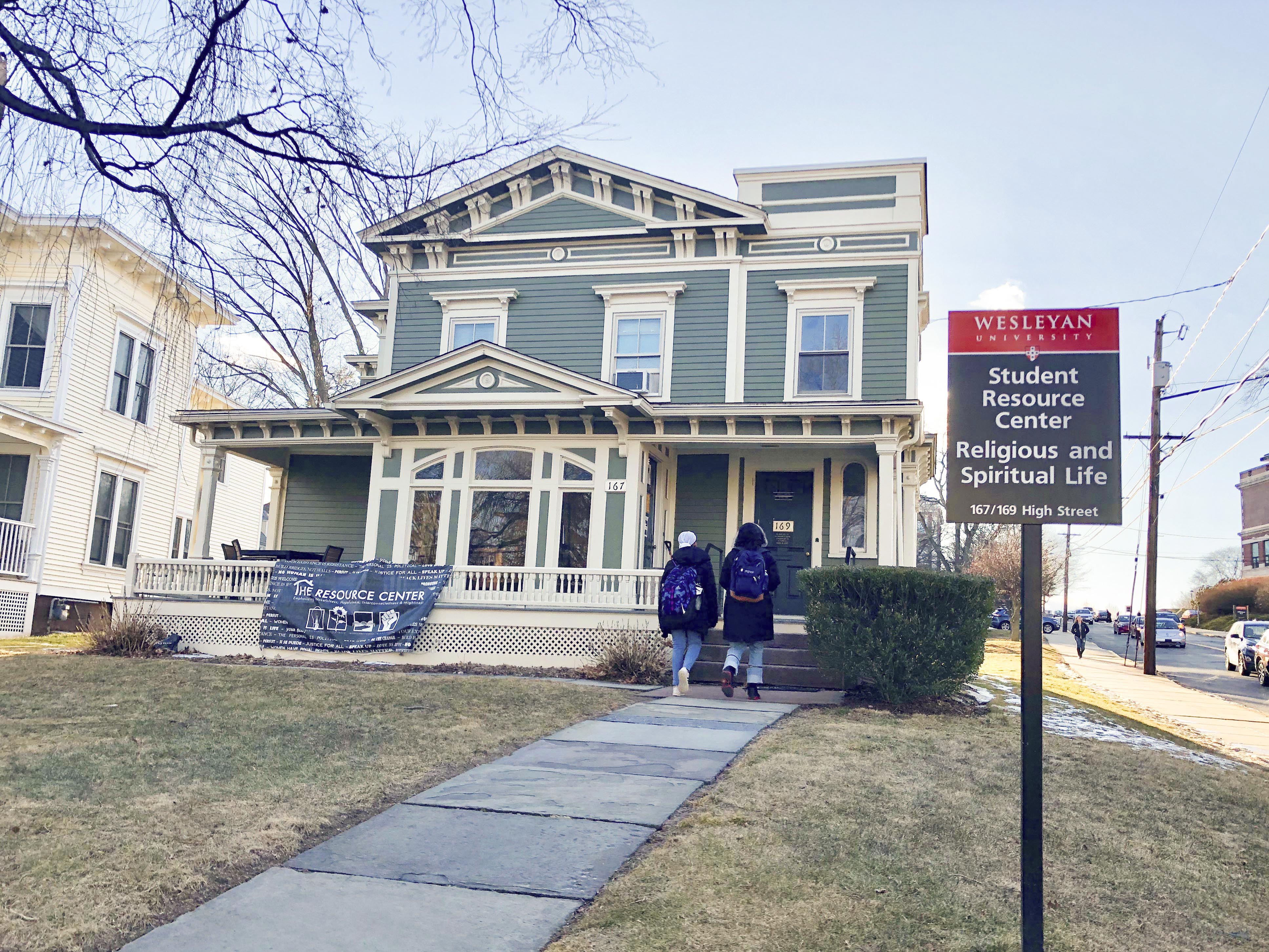
Ava Nederlander, Staff Photographer
On May 2, students gathered in the Office of Religious and Spiritual Life (ORSL) lounge to share their experiences and relationship to faith through various artistic mediums. Organized by Joy Feinberg ’19 and the Wesleyan Interfaith Council (IC), the multi-faith open mic was open to all identities in a continued effort to facilitate dialogue and solidarity between faith groups as well as with the broader Wesleyan community.
In planning the multi-faith open mic, event organizers expressed that creating a safe space where students felt comfortable discussing personal and sensitive material was of great importance.
“Any time you build a space in which people are encouraged to share, the number one rule has to be that everything that is shared to the group is only for the group,” Feinberg said. “I was most happy about how much trust was established in this space. I think that fostering an atmosphere where people feel safe and heard enough to share something deeply personal or difficult can sometimes be hard on this campus. I am so proud and blown away by everyone’s ability to do that tonight.”
During the open mic, students conveyed both the joyous aspects of faith, as well as the personal challenges that arise from wrestling with belief, through varied art forms ranging from poetry to creative writing. Students also engaged in post-performance dialogue about the sentiments expressed in the open mic performances.
Event organizers also spoke to the common challenge of ensuring that these multi-faith events are representative of the diverse faith groups and voices on campus.
“I was really glad that it didn’t ever feel like there was one faith dominating the conversation,” Feinberg said. “I think that’s always a sticking point with multi-faith conversations, sometimes the conversation really seems to be geared toward one direction. This is a campus that has a very large Christian and Jewish community, and that was definitely audible tonight, but this is also a campus that has a lot of untold religions and voices that should be expressed.”
Further addressing issues of representation, Joy Adedokun ’19, an attendee of the open mic, expressed her hope that future multi-faith events will reflect the greater breadth of faith diversity on campus so more communities will have the opportunity to be present for and engage in impactful discussions.
“I am really grateful that we had this event this evening and everyone felt comfortable sharing a piece they felt was important to them,” Adedokun said. “However, I noticed that we did not have any Muslim faiths represented, neither were Buddhist nor Hindu voices represented. I think what the interfaith community needs to be more mindful and intentional about is striving for creating spaces where students from more faith backgrounds are represented.”
Feinberg expressed that holding these spaces, regardless of turnout, is crucial to supporting students of faith on campus.
“I feel very strongly that events should be planned on the fact that they should exist and not on the basis of how many people are going to come,” Feinberg said. “We had an amazing crowd, which was phenomenal, but if we made this space and only two people showed up, it would have still been a success in the sense that an event like this should exist and because of this, it needs to exist regardless of how many people physically show up. I think that this is very important for community leaders to think about, not just in faith communities but in any communities.”
Ori Cantwell ’22, who will be one of the leaders on the IC next semester, also echoed this sentiment that events such as the open mic are a crucial part of fostering desired engagement and progress in multi-faith work.
“Events like the multi-faith open mic are important because they help us further our mission in a way that’s accessible to a wider variety of students,” Cantwell wrote in an email to The Argus. “I was happy to see students there who, maybe it was their first time engaging with Interfaith Council, or maybe they don’t attend other religious life events. We’re hoping to create similar intersectional programming in the future.”
Reflecting more upon on their multi-faith work within the context of the Wesleyan community, event organizers shared some of the particular challenges faith groups face at Wesleyan.
“One of the things I really love about Wesleyan is how students are always here to listen and make space for one another,” Feinberg said. “However, on the level of the administration it gets a lot harder. I think because faith expresses itself and practices itself in so many different ways, it can be difficult for administration to properly address the multifaceted needs of faith groups. I would say there is no limit to what faith groups need and an important step forward that needs to happen more would be for the administration to be willing to be in constant conversation with groups to address student needs.”
Cantwell remarked on the lack of religious accommodations on campus and the subsequent challenges that poses for students of faith. In discussing next steps for the IC, Cantwell also noted that addressing the lack of religious accommodations will be central to their efforts.
“This year we still saw Terp being scheduled on Good Friday, one of the holiest days of the year for many Christians, and Passover, an important Jewish holiday,” Cantwell wrote. “Something as simple as scheduling should not be the reason that religious students are excluded from parts of campus life, and this is one of the Interfaith Council’s focuses for next year. We’re hoping to create a campus-wide calendar with major religious holidays on it, with contributions from each faith community on campus, and it’s my hope that Wesleyan will support us in distributing that. We’ve had such great support from the [Wesleyan Student Assembly] as well, and are looking forward to continuing working with them this fall.”
Serena Chow can be reached at sschow@wesleyan.edu.
Comments are closed